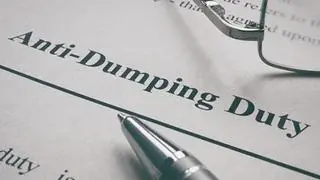India has complained about the new regulations imposed by the European Union (EU) unjustifiably restricting the export of a broad range of commodities, due to an alleged contamination by pesticide residues detected during official controls.
This includes several spices, guar gum, locust, calcium carbonate and food supplements containing botanicals originating from the country.
‘Disguised barrier’
At a WTO meeting of the sanitary and phytosanitary committee last week, India said not sufficient time was given by the EU to implement corresponding measures and the restrictions could be a disguised barrier to trade, according to a Geneva-based trade official.
“A complaint against the EU, similar to the one made by India, was also raised by China at the meeting. Its representative said the EU maximum residue levels (MRLs) standards on pesticides such as ethylene oxide and dichloroethanol were not based on science and did not apply in most countries where limits for the use of these pesticides used in food crops are different according to different food categories,” the official said.
EU’s response
In its defence, the EU said the pesticide detected was ethylene oxide (EtO), a substance classified as a mutagen, a carcinogen and a reproductive toxicant. It noted that it was not not possible to define any level of exposure for consumers as safe, as all levels presented a potential risk to their health.
It further added that both the Indian and Chinese authorities were timely informed and asked to take follow-up actions. Despite the alerts, non-compliant consignments of a wide range of commodities continued to arrive to the EU countries, it said. “The EU representative said that to check such non-compliant consignments, temporary measures were taken in order to mitigate the possible risk for the health of European consumers,” the trade official pointed out.
India has been facing a number of issues related to agriculture exports to the EU. The latter’s low MRL for tricyclazole used in rice crops is a big concern for India as it has affected the country’s basmati exports to the bloc. India is in talks with the EU on fixing the matter.
“India hopes that the new restrictions imposed by the EU affecting a large number of farm products can also be suitably redressed by discussing the matter bilaterally,” another source said.
Concerning Russia
New Delhi also asked the Russian Federation to rectify its recently notified regulation on 11 new quarantine pests in order to ensure that consignments from India are not detained at the border. India noted that nine of those pests are not known in India and therefore, the quarantine should not apply to its exports.
Besides, the country was also asked to do away with the new phytosanitary certificate requirements for groundnut and sesame seeds that had resulted in a halt of its exports from India.
In both cases, Russia said its regulations and notifications were based on science and in accordance with the regulations in the country.







Comments
Comments have to be in English, and in full sentences. They cannot be abusive or personal. Please abide by our community guidelines for posting your comments.
We have migrated to a new commenting platform. If you are already a registered user of TheHindu Businessline and logged in, you may continue to engage with our articles. If you do not have an account please register and login to post comments. Users can access their older comments by logging into their accounts on Vuukle.